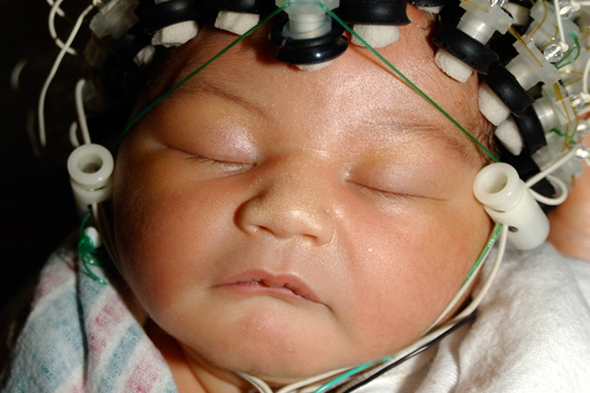

The human infant is ready and willing to engage in interpersonal encounters shortly after birth. Tuned in part by experiences in the womb, infants are equipped with several perceptual and sensory preferences which guide their earliest social interactions and allow them to become active participants in forming their first relationships. The newborn baby is a “data sponge” prepared to interact with the environment and adapt to life outside the womb. They pay attention, respond to events and different kinds of stimulation, and can remember and learn, even while asleep. Doctor William Fifer will discuss the science behind our efforts to find out what the newborn knows about the world, how babies effectively learn about their new environment and whether these early capabilities can shape their future development.
About the Speaker
Dr. William Fifer is Professor in Psychiatry and Pediatrics and Associate Director of the Sackler Institute at Columbia University Medical Center. His early work focused on the effects of prenatal experience on infant behavior and perceptual preferences with a specific interest in the role of fetal and newborn learning about voices. Following his NIMH fellowship in Developmental Psychobiology his research interests expanded to studies of fetal, newborn and premature infant physiological and neurobehavioral responses to environmental stimulation during sleep and the effects of prenatal exposures on later neurodevelopment. He has active collaborations within the Departments of Psychiatry, Obstetrics, Pediatrics, Behavioral Medicine, and the Mailman School of Public Health at Columbia, and several other academic institutions including Oglala Lakota College in South Dakota and Stellenbosch University in South Africa. He and his colleagues are currently involved in a large NIH funded cohort study of 12,000 mothers and infants in North and South Dakota and in Cape Town, South Africa which is looking at the short and long term effects of adverse exposures during pregnancy on the developing brain. His NIH MERIT Award, the Sackler Institute and other NIH funding, support his current research on the effects of maternally mediated exposures on the developing fetus, early learning and memory, behavioral and cortical activity during environmental challenges, development of brain regulation during sleep and assessment of risk for neurological disorders.
TIME CHANGE – this lecture will now begin at 7:30 pm.
We would love to hear from you! Please complete the form and let us know how we can assist you. The information you provide is confidential and will not be used for any other purpose.
